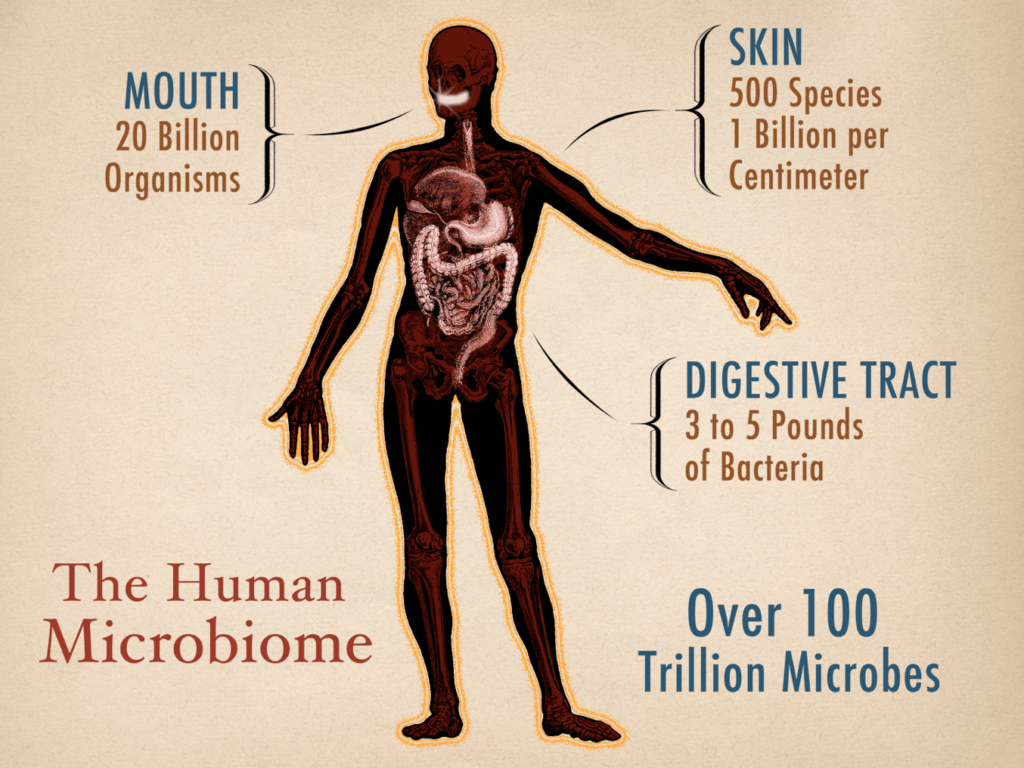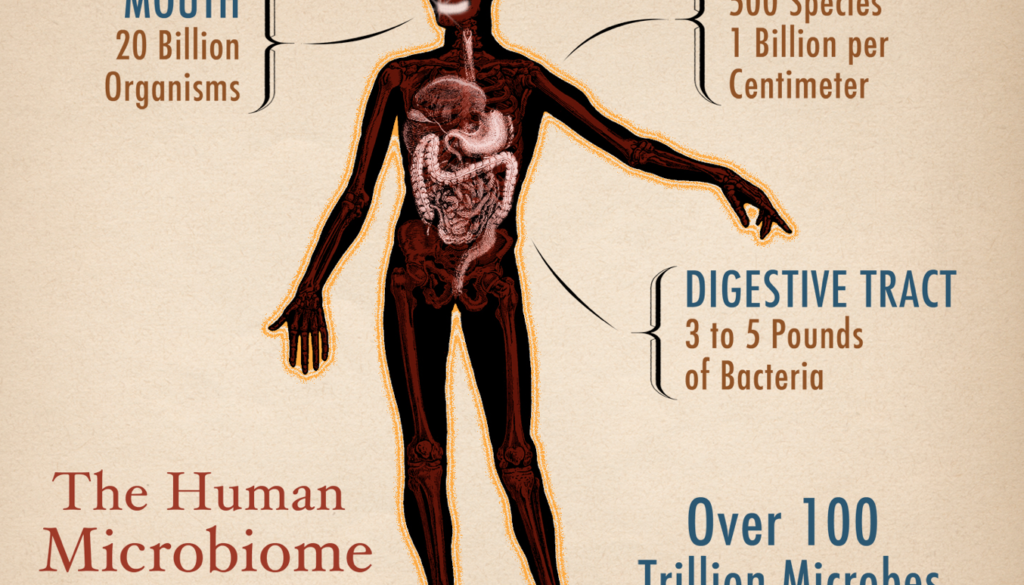Making Friends With Your Microbes
By Kevin Spyker, Certified Healing Foods Specialist from Culture Den

What does it mean to be human? Really, truly human?
In a moment, you’ll understand why we are 1/10th as human as we previously thought, and how this realization has profound implications for modern medicine and nutrition… all with a little help from my friends…
They’re microbes – and we cannot survive without them!
So, what exactly are microbes? These are the smallest, simplest forms of life on Earth. You may know them as algae, bacteria, yeast, or mold. And let’s face it, they’ve earned a pretty bad reputation over the years, taking the blame for plagues, malaria, swine-flu pandemics… and yes, moldy left-overs.
Even so, I’m here to defend these tiny crusaders. They’re more than just mindless minions that invade our bodies. Microbes were the original spark of life on Earth. They formed the building blocks of all living creatures to follow, and still occupy places where no other life-forms can survive. Most notably, they live right inside you and me… in astounding abundance! And we’re not alone – all plants and animals have co-evolved in a symbiotic relationship with microbes. Researchers have discovered more than 10,000 different species along for the ride, and their influence on us is staggering! Like fingerprints, we each have our very own unique profile of microbes, and our inner eco-system is as lush as a rainforest. Imagine this complex landscape on a tiny scale, teeming with microbes in constant harmony and competition. But like a rainforest, this is a sensitive environment that needs careful preservation.
Let’s take a moment to peer inward and experience our own microbiome, the vibrant community of microscopic life-forms that dwells within each of us.
Right now, on our skin alone, we host 500 different species, with up to a billion organisms per square centimeter. Every fold of our skin serves as hospitable terrain for these colonies. In our mouth, 20 billion little guys have set up shop. In our digestive tract, we hold 3-5 pounds of bacteria. In all, we each harbor a population of microbes in excess of 100 trillion. Cell for cell, they outnumber us 10 to 1! So think of yourself as a walking metropolis with thousands of distinct life-forms. And for them, our body is prime real estate. They will stand their ground for the privilege of living with us by fending off pathogens and disease.
The true powerhouse of microbes resides in our intestines, where our food is transformed into the raw materials that build our flesh, blood and bone. We really are what we eat, and we’re learning that microbes fuel the fire. If we think of food as information, they are the interpreters.
In training as Healing Foods Specialists, we studied how diet relates to human history. We focused on the eating habits of isolated cultures, untouched by modern industrial foods. A common thread among these indigenous people was their instinct to preserve and enhance their harvests. They all learned to harness the power of microbes. Nowadays, we call this fermentation: creating a selective environment that encourages an abundance of beneficial bacteria, while keeping mold and pathogens at bay. Fermentation has been practiced on every continent, with thousands of unique methods for tens of thousands of years. Even without the luxury of microscopes and laboratories, every known culture came to understand these basic principles, and held them to be sacred. Fermentation experts agree: this knowledge preceded our grasp of agriculture, perhaps even fire!
Beyond our familiar wine, beer, cider and sake, we’ve come to enjoy cheese, yogurt, kefir, and sourdough bread, along with artisanal pickles, sauerkraut, and kimchi, among others, all with processes carried out by microbes. Olives, anchovies and sausages all get a little help from our friends. Even the production of chocolate and coffee involves fermentation.
Only after the advent of refrigeration and chemical preservatives did we start to miss out on the benefits of cultured food. New-fangled methods like canning and pasteurization were invented to obliterate germs with high heat and pressure. Little did we know this shift towards large-scale production was also destroying fragile enzymes and vitamins, despite the apparent convenience. Eventually, we were left with sterile imitations of these ancient “living foods.”
Fortunately, we’re enjoying a fermentation renaissance! We’re letting go of our fear of germs, and embracing a new perspective on a very old idea. Probiotics are proving to be a powerful defense against disease, and lately these supplements have been flooding the market. Just keep this in mind – food labs have confirmed that a single serving of homemade fermented foods can deliver 10 TRILLION new guests to the party! Even against the strongest commercial supplements, a little bowl of grandma’s kraut equals an entire bottle of lab-grown probiotics. (If you ever think cultured veggies are too expensive, remember that one $7 jar could be worth up to $400 in probiotic pills!)
In addition, fermented foods offer far more microbial diversity, which is crucial to building a strong colony. Each strain carries out a unique task to maintain a thriving eco-system. Certain species deliver powerful enzymes, the catalysts for good digestion. Others actually synthesize nutrients, like Vitamins B and K. They neutralize toxins and regulate the acidity of our gut. Most importantly, they form the headquarters of our immune system. They guide our bodies, allowing us to truly integrate with our environment, like logging onto a kind of primordial internet…
So… Microbes. Everywhere.
These are sentient beings, the ever-present grounds keepers of their terrain. Let’s remember that we “humans” are just the latest guests in this vast community of microbes. We live in their world. We evolved together, entwined and symbiotic. They come rushing into us the moment we are born, flowing through us in an endless stream everyday of our life. They become our silent partners. And when our life comes to an end, they break us down to form new life, and continue on their quiet journey through the ages.
The time has come to take ownership and responsibility for our Microbiome. Let’s make friends with our microbes!
Check out our new How-To video: Probiotic Salsa
See my TEDx talk about our Microbiome: Making Friends With Your Microbes
We are proud to serve as Chapter Leaders for the Weston A. Price Foundation and regional coordinators for the Natural Life Business Partnership.
We invite you to join us at our creative event space in St. Peter’s Village for workshops, networking nights, documentary screenings and live music performances: www.cultureden.life
Follow us on Facebook and Instagram: culture.den



